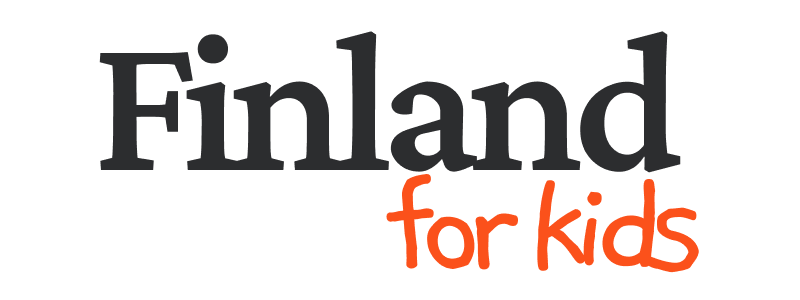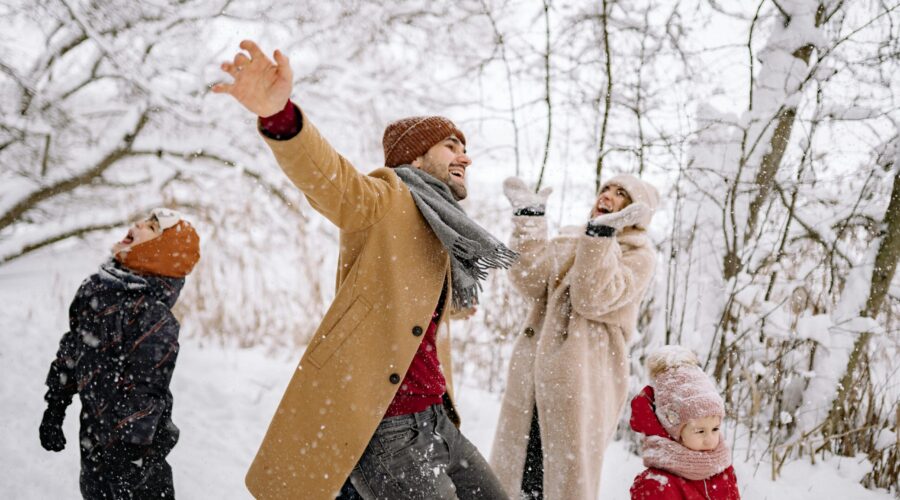8 Surprising Cultural Shocks for Families Moving to Finland
Finland is a great place to live as a family. But even the most thorough research can’t prepare you for the reality of raising kids there. From babies napping outside in sub-zero temperatures to the fundamental role of saunas and summer holidays, these are the biggest cultural shocks parents face when living in the country.
Long parental leave – for both parents
Finland’s generous paid parental leave is nothing new to those considering moving there. In fact, that’s one of the main factors attracting international talent to establish in the country. What many people are unaware of is how inclusive and equal these policies are.
Both parents, regardless of gender, are entitled to the same amount of paid leave. Each of them receive 160 days of paid leave, and they can transfer up to 63 days to their partner if they choose. This policy sends a powerful message: parenting is a shared responsibility. The system deliberately moves away from traditional gender roles, encouraging fathers to take an active role in early childcare.
The inclusivity extends beyond biological parents. Adoptive parents receive the same benefits as biological ones, with their leave period beginning when they take custody of their child. Same-sex couples also enjoy equal rights to parental leave, reflecting Finland’s progressive stance on family diversity.
Babies sleeping outside. Alone. In the cold.
Finland is a safe country, so seeing parents leave a pram outside a store or coffee shop isn’t surprising. But wait – there’s a small child inside! The concept of Nordic napping can be peculiar to foreigners, but it’s perfectly normal in Finland, even in winter.
The fresh, cold air is believed to help babies sleep better and longer, and modern research supports this theory. Studies show that babies who nap outdoors tend to sleep more deeply and for longer periods, likely due to the combination of fresh air and the calming white noise of nature.
Interestingly, many foreign parents who initially find this practice shocking end up embracing it after moving to Finland. They often report their babies sleeping better outdoors and falling ill less frequently.
Free food, but don’t be picky
One of the first things that amazes foreign parents in Finland is the free school meals. From daycare to high school, all children are provided with free, nutritious lunches every day. For foreign parents, this can feel like an incredible benefit, especially in countries where school meals are expensive or not provided at all.
The food is healthy, balanced, and designed to meet strict nutritional standards. Meals often include vegetables, whole grains, proteins like fish or legumes, and a glass of milk or water. Special diets for health, religious, or ethical reasons are accommodated, but “I don’t like it” isn’t considered a valid reason for an alternative meal. The menu is set, and children are encouraged to try everything.
This approach might feel unusual for parents from cultures where kids are given options or allowed to bring their own meals. Finnish schools aim to teach children the importance of a varied diet and reduce food waste. For many foreign families, the free school meals not only save time and money but also introduce their children to Finland’s food culture.
7-year-olds walking to school alone
For many people, watching a 7-year-old walk to school alone through snowy streets or seeing children taking public buses independently can be nerve-wracking. Yet in Finland, this level of childhood independence isn’t just normal – it’s encouraged and expected.
First-graders commonly walk, cycle, or take public transportation to school by themselves or with classmates. After school, many children let themselves into their homes, prepare a snack, and stay alone until their parents return from work. While after-school clubs exist, many families opt for this independent arrangement, trusting their children to handle basic tasks.
This culture of independence wouldn’t be possible without Finland’s high social trust and low crime rates, but it goes deeper than safety alone. Finnish society believes that children develop responsibility and confidence through freedom. For many foreign parents, it takes time to adjust to this hands-off approach. However, they are often surprised by their children maturity and problem-solving skills.
Free education that is as good (or better) than private
In Finland, private schools are almost non-existent (and unnecessary). Public education in Finland is so high-quality that it’s often considered as good, if not better, than private options in many other countries.
This can be a shock for parents coming from countries where private schools are seen as essential for quality education. In Finland, all schools follow the same national curriculum, and teachers – who must hold a master’s degree – receive the same high-quality training regardless of where they teach. The local public school around the corner likely offers the same, if not better, education than any private institution.
This equity in education means parents don’t need to stress about school districts, admission tests, or tuition fees. Every child has access to excellent resources, small class sizes, and extracurricular activities, all provided for free or at minimal cost.
A nation on standby for the summer
Ah, the great summer exodus… From late June to early August, Finland essentially shuts down. Cities become eerily quiet, daycares close, and even finding an open restaurant can be challenging. Welcome to Finnish summer holidays, the time of year Finns spend the other nine months waiting for.
For parents, this means adapting to a completely different rhythm. Most Finns take three to four weeks off work during this period, coordinating their holidays with their children’s seven-to-ten-week break from school. The concept of working through summer while sending kids to summer camps – common in many countries – is rare here. Instead, families retreat to their summer cottages to enjoy the brief Finnish summer in all its glory.
This national “standby mode” can be shocking to people from cultures where work and life continue at full speed year-round. Parents often need to rely on their own vacations, flexible work arrangements, or community-based activities to manage the long summer. However, many come to appreciate how the slower pace allows for quality family time.
Outdoor play no matter the weather

“There’s no such thing as bad weather, only bad clothing,” this well-known Finnish saying sums up the local attitude perfectly. In Finland, the weather is never an excuse to stay indoors.
Children spend significant time outside regardless of the temperature or weather conditions. Forest and nature excursions are regular parts of education, not special events. The Finnish philosophy views outdoor time as essential for both physical and mental well-being.
This love of the outdoors isn’t just for kids, it’s a family affair. Parents often take their children hiking, biking, or sledding in winter. The key is dressing appropriately, with layers, waterproof gear, and insulated clothing ensuring comfort in any weather.
A sauna to call your own
Learning that your apartment comes with a private sauna might seem like a luxury. But in Finland, it’s as standard as having a bathroom. With over 3 million saunas for 5.5 million people, saunas are just a normal part of daily life.
What might shock foreign parents is how casual sauna culture is. Families often use saunas together, including small children. There’s no hesitation about nudity, which is seen as natural and non-sexual. This openness can be an adjustment for those from more modest cultures,
Instead of a spa-like luxury, sauna can be an everyday family activity. Many parents embrace the sauna as a unique bonding experience. Without distractions, it becomes a place where family members can unwind together, connect and relax.
Some aspects of Finnish culture can be surprising for newcomers. However, the happiest country in the world offers valuable lessons in raising strong, independent, and nature-loving children. International families can make the most of their time here by learning about Finland’s way of living.



